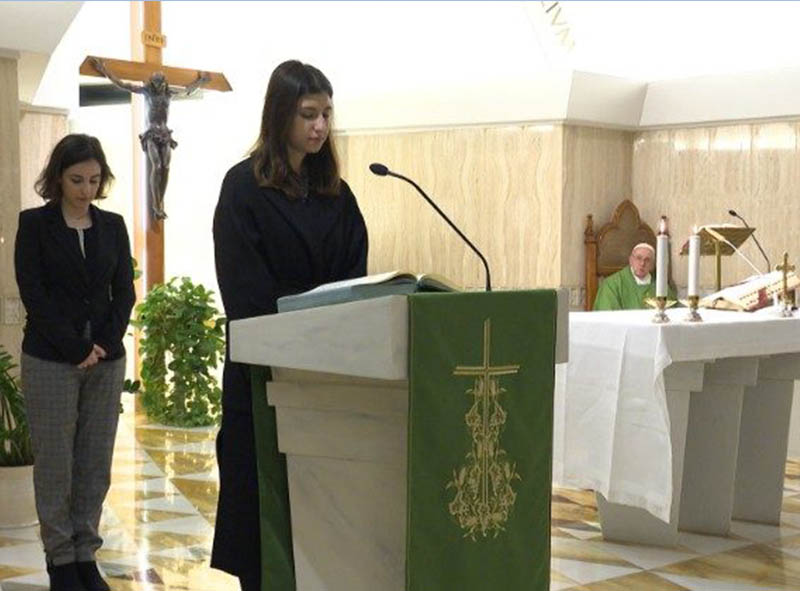Marco Carvalho
A great honor, but also a great responsibility. This is how Maria Lúcia Fonseca, a missionary of the Franciscan Missionaries of Mary, received the papal decree authorizing women to distribute communion, to serve as acolytes and to read the Word of God during the Eucharist.
In most of the dioceses worldwide, women and girls have been lending a helping hand at the altar for decades. During the Mass, there are acolytes and female lay women that collect the offertory and distribute communion, among other Eucaristhic services. Until early this week, this kind of services and missions were done without recognition, under legislation that specified that only men could assist priests during the celebration of the Mass. On Monday, a decree promulgated by Pope Francis institutionalized new rules, allowing women – whether religious or lay – to conduct these activities and services in a regulated manner. The changes were made through a “motu proprio,” a pontifical document that introduces modifications in the current code of Canon Law. The decree – which reevaluates the contribution of women in the context of liturgical services but does not open the door to feminine priesthood – revises a 1972 decree by Pope Paul VI, Ministeria quaedam, which only allowed men to play the roles of lectors and acolytes.
Sister Maria Lúcia Fonseca believes that the changes now introduced constitutes a vote of confidence in the liturgical work women developed over the past few decades, but also a challenge, confronting them with new responsibilities. The Franciscan missionary sees the papal decree as “a reminder that what was being done should be done with dignity”: “The Holy Father made these services official, the involvement of women and I think it is good, a good thing. It’s good. Now, we have to assume [our mission] with greater responsibility, by preparing the people who are willing to help, who are available to read, to take part in the offertory, that are going to interact in the Eucharist,” the Franciscan missionary claims. “These people must be trained; these people need to receive a thorough formation. A lector, for example, should not read just because everybody knows he likes to read…. The preparation I was telling you about consists of training them first, so that they understand the Word of God, the dignity that the altar requires, which parts of the altar should be reserved for priests and those that can be used by the rest of the people. They have to be informed and trained first,” adds Sister Maria Lúcia.
The papal decree promulgated early this week does not imply substantial changes for most of the Catholics worldwide, not least because a good part of the services and practices now institutionalized – such as reading the Word of God or distributing the Holy Communion – are already widely spread and rooted in the daily life of the Church. Hence, Maria Lúcia Fonseca does not expect any kind of resistance to the papal decree, as long as people can be properly prepared: “This has been happening for a long time. I have been a minister of Holy Communion for more than forty years. Here in Macau, the Diocese provides several hours of training every year to all those men and women who are nominated as suitable persons to distribute the Holy Communion, who are extraordinary Ministers of Holy Communion. This has been happening for a very long time here in Macau. The Pope now has made it official, but this is being done already everywhere,” the missionary emphasized.


 Follow
Follow


